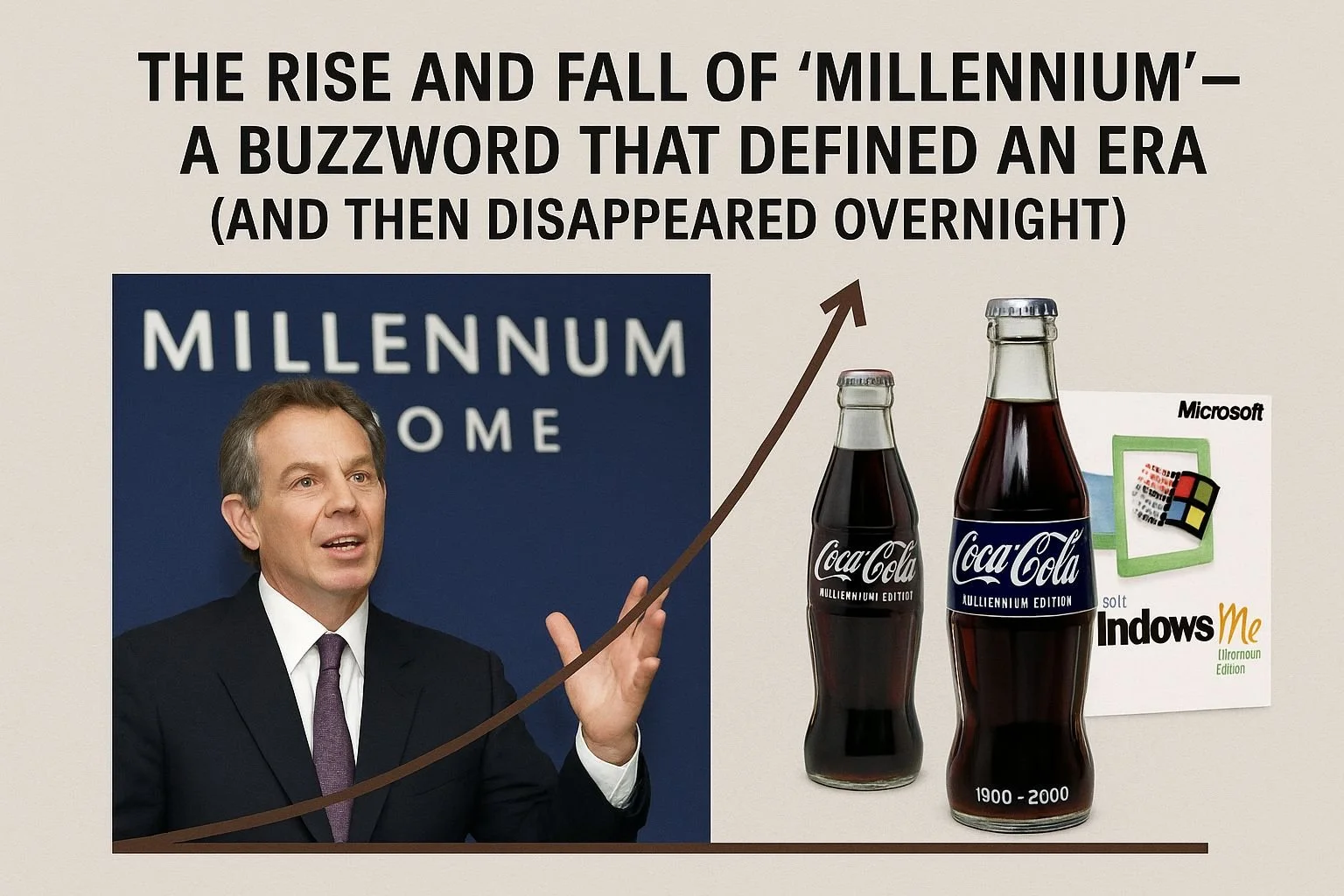The Rise and Fall of “Millennium” – A Buzzword That Defined an Era
some marketing buzzwords burn bright and fade fast—and few did so quite like “Millennium.
And Then Disappeared Overnight.
As digital marketers, we live and breathe trends. But some buzzwords burn bright and fade fast—and few did so quite like “Millennium.”
In the late 90s, as the year 2000 loomed, “millennium” was everywhere. It tapped into a global fascination with the future, the new, the digital. Brands went wild:
“Millennium Editions” of everything from Coca-Cola to Monopoly.
Microsoft launched Windows ME (Millennium Edition).
Cities planned huge “Millennium Celebrations.”
Even luxury car brands jumped on board with special models.
Why did it work? Because it captured the cultural moment—a mix of optimism, fear (hello Y2K), and a desire for progress. Marketers used it as shorthand for innovation and modernity.
But here's the catch: by January 2, 2000, the word already felt… dated. By 2001 (the real start of the millennium), “millennium” had gone from futuristic to nostalgic. Its overuse made it a relic almost instantly.
Digital marketing lesson?
Tie your messaging too tightly to a fleeting trend, and you risk becoming obsolete just as quickly. The most effective campaigns speak to human needs—progress, belonging, simplicity—not just hype.
We've seen the same cycle with words like “Web 2.0,” “disruption,” and now even “AI” (when misused or overused). Buzzwords can open doors, but only when backed by meaningful value.
If your brand is chasing relevance, remember: trends are tools, not strategies.
What other marketing buzzwords have you seen come and go?




Discover the SEO strategy that helped a brand-new site rank #1 in Google’s AI Overview—without backlinks or domain authority. Full case study inside.